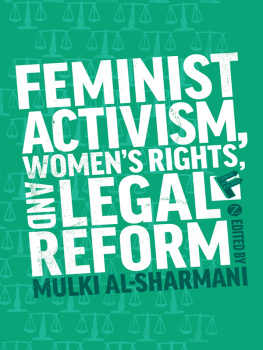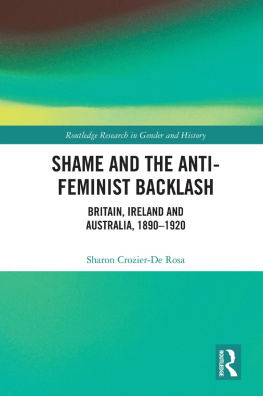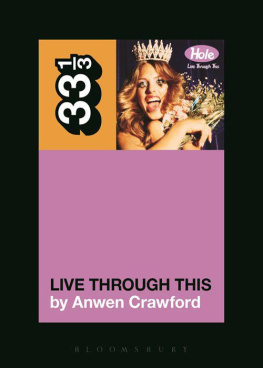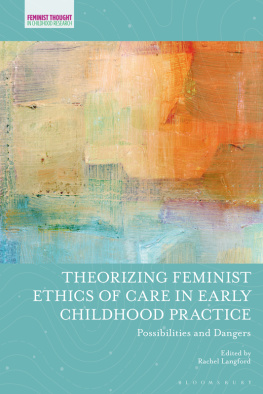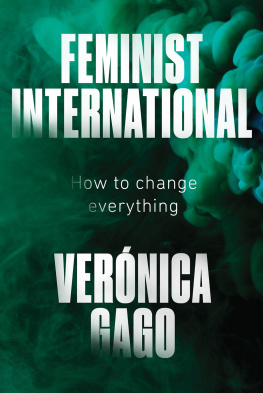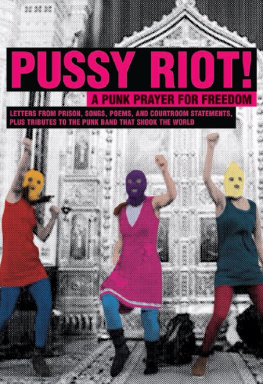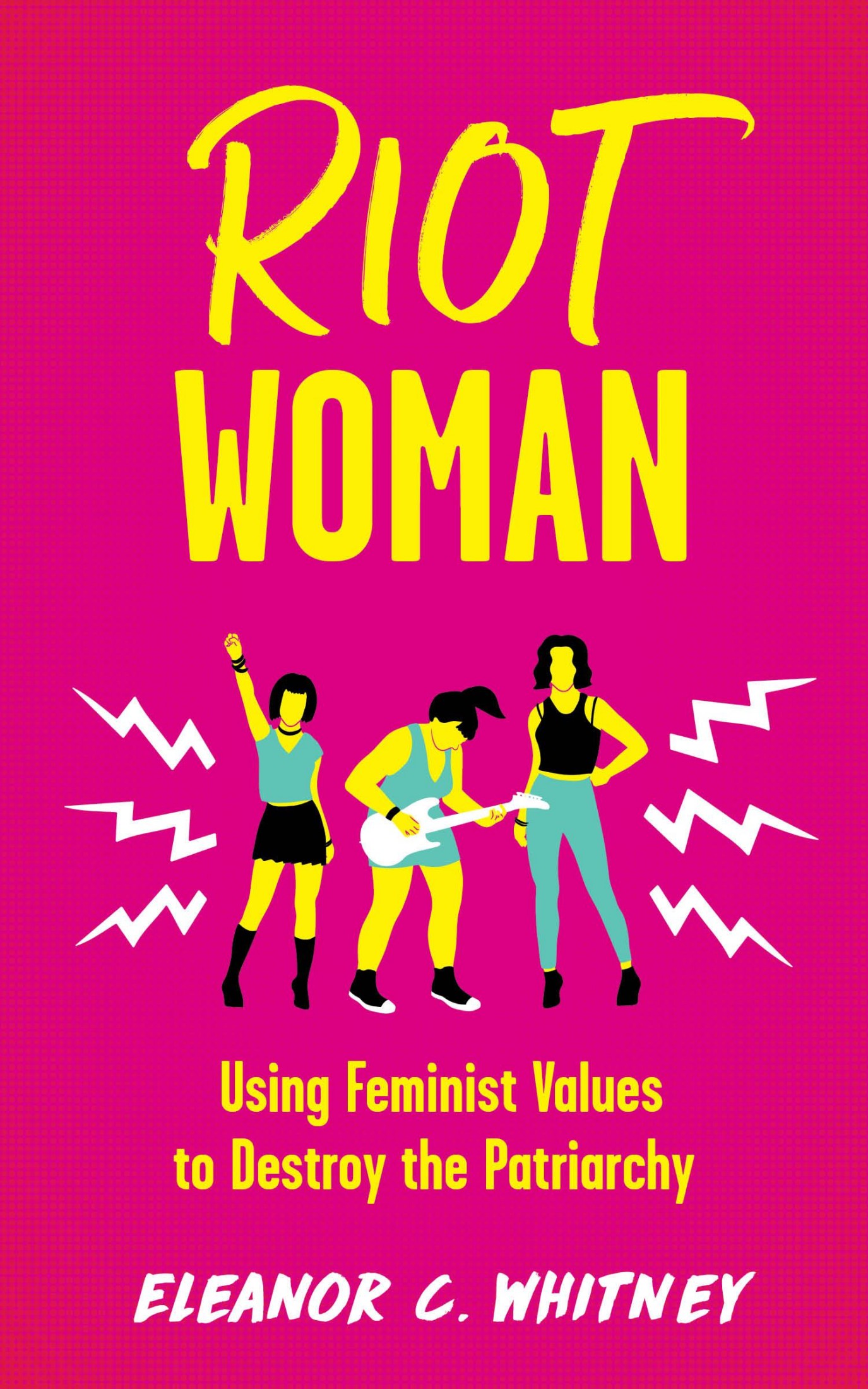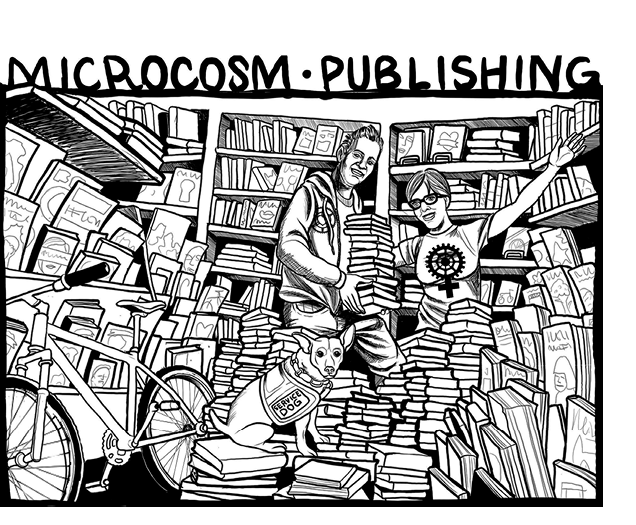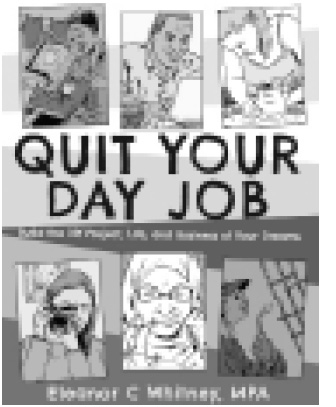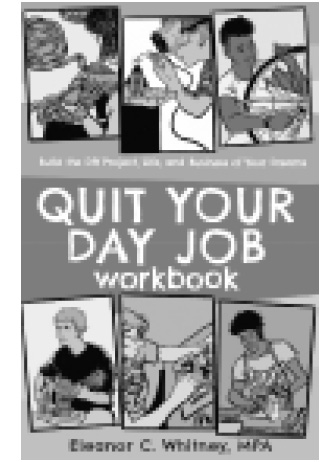RIOT WOMAN
Using Feminist Values to Destroy the Patriarchy
2021 Eleanor C Whitney
This edition Microcosm Publishing 2021
eBook ISBN 9781648410970
This is Microcosm #273
For a catalog, write or visit:
Microcosm Publishing
2752 N Williams Ave.
Portland, OR 97227
https://microcosm.pub/RiotWoman
Some names and identifying details have been changed in this book.
Did you know that you can buy our books directly from us at sliding scale rates? Support a small, independent publisher and pay less than Amazons price at www.Microcosm.Pub
Microcosm Publishing is Portlands most diversified publishing house and distributor with a focus on the colorful, authentic, and empowering. Our books and zines have put your power in your hands since 1996, equipping readers to make positive changes in their lives and in the world around them. Microcosm emphasizes skill-building, showing hidden histories, and fostering creativity through challenging conventional publishing wisdom with books and bookettes about DIY skills, food, bicycling, gender, self-care, and social justice. What was once a distro and record label was started by Joe Biel in his bedroom and has become among the oldest independent publishing houses in Portland, OR. We are a politically moderate, centrist publisher in a world that has inched to the right for the past 80 years.
Global labor conditions are bad, and our roots in industrial Cleveland in the 70s and 80s made us appreciate the need to treat workers right. Therefore, our books are MADE IN THE USA.
Also by Eleanor C. Whitney:
Quit Your Day Job: Building the DIY Project, Life, and Business of Your Dreams
Quit Your Day Job Workbook: Building the DIY Project, Life, and Business of Your Dreams
To all my penpals, zine kids, and Riot Grrrls: I am humbled by the way your words and lives have continued to shape me. For Elissa Nelson, Jordana Swan, and Matt Yu thank you for sharing your visions of creativity and justice with me, even if our time together was too short.
Contents
Introduction
Part one: Feminist Coming of Age
- THE RADICAL POTENTIAL OF RIOT GRRRL
- A BRAVE GIRLS WORLD
- REVOLUTION GIRL STYLE NOW
- GIRL UTOPIA FOUND AND LOST
Part two: Forging Feminist Community
- A BOSTON MARRIAGE
- Rewriting the Marriage Plot
- BEYOND A SEAT AT THE TABLE
Part three: Fighting Injustice and Building Feminist Power
- Our Bodies Are Not Ourselves
- DISCRIMINATION BY DESIGN
- Pretty White Worlds
- ACTIVISM BEGINS AT HOME
- Creating space
- Power Together
- TOWARDS GIRL UTOPIA
- Acknowledgements
- Bibliography and Further Reading
introduction
I was twelve years old the first and last time I uttered the words, Im not a feminist, but
As soon as they left my mouth I felt a sense of betrayal. If I was for girls and women taking power and being equal, why, exactly, would I not be a feminist? Since that moment I have never questioned whether or not I was a feminist or whether or not feminism was relevant to me. I have, however, continuously questioned what kind of feminism I want to practice and critically examined from where I draw feminist inspiration and guidance.
In high school, when I encountered the writing of bell hooks, the ferocious energy of punk and Riot Grrrl, and the nuanced, intersectional exploration of identity captured in young womens zine writing in the 1990s and early 2000s, I saw clearly the kind of feminist I aspired to be and the type of feminism I strove to practice. Riot Grrrl, the punk feminist movement that generated in Olympia, Washington and Washington DC in the early 1990s took a do-it-yourself, direct approach to feminism: starting bands, organizing conferences, publishing zines, and proclaiming, The revolution starts here and now within each one of us. I learned quickly that I had to be an intersectional feminist, thinking about how gender, race, class, and sexuality intertwine, and an ally to those who had less societal power and privilege than me. If I was a feminist who stood against oppression and for social justice, my practice and beliefs must be expansive and committed to the liberation of all as opposed to the triumphs of specific women.
As an adult, I began this collection of essays because the ascension of a form of mainstream, neo-liberal feminism seemed to be inevitable and like it would keep oppressive structures of power intact under the guise of feminist empowerment. This type of neoliberal feminism is dangerous because it celebrates and benefits women as disconnected individuals and holds those who rise to the top in business, politics, or the cultural industry as examples of willpower, perseverance, and success for the rest of us. This form of feminism does not look deeply at the structural inequalities that form the foundation of American culture, policy, and our relationship and family structures. It instead centers on individual womens stories of success, downplays how different women have differing access to opportunity and support due to structural oppression, and presents a bland narrative of celebrating women for the sake of being women. Its guises and different flavors include corporate feminism, pop culture feminism, girl power, and white feminism. Overall, these individualized, neo-liberal approaches to feminism ignore how policies that benefit some women, often those with privilege, may negatively affect, or be irrelevant to, those coming from communities of color, working class backgrounds, or the LGBTQIA community. In beginning to write the essays in this book I wanted to write a counter narrative, and to celebrate, investigate, and invite readers to practice an intersectional feminism that focuses on liberation for all, not the ascension of a few.
In this cultural moment where mainstream feminism seemed to be merging with mainstream culture, I wondered if the scrappy, Riot Grrrl-influenced feminism that had been dear to me as a teenager, and influenced my adult feminist stance, was still relevant. Despite the fact I that loved the stylish options of feminist t-shirts available to me thanks to feminisms new-found cool, I wanted to have deeper conversations about what it means to enact feminism that went beyond catchy slogans and personal responsibility for your corporate career. I wanted to parse Riot Grrrl and the cultural context of the late 1990s and find where those feminist ideals needed to evolve and where they were still relevent and could serve us presently to deepen our commitment to radicalism and liberation for all.
In writing this book I posed a question to myself, which I also pose to you as a reader: how have our feminist practices, beliefs, and ideals grown and changed as we have, and what does it mean to be a feminist at this moment in our lives?
At first, I wanted to find a road map for living, and building, a feminist life oriented towards social justice and grounded in my lived reality. What I realized in writing, which should have been obvious, is that there is no map, but there is our collective experience, and when we share that our paths become clearer. These essays document and reflect upon how Riot Grrrl-influenced feminism has influenced my life and a greater feminist discourse in general. I explore how I have worked to live with, stick to, and evolve my principles and identity as a traditionally educated, middle class, white feminist who practices intersectional thinking, and looked critically at how broader cultural movements and trends have shaped feminism more generally. My aim is to encourage readers to embrace a commuity-oreiented feminist life in all its messiness, contradictions, and imperfections using Riot Grrrl as a touch point and illustration of a concentrated expression of radical feminist ideals. Our society is still deeply sexist, racist, homophobic, transphobic, and class-based. Feminism does not wipe away those ingrained beliefs, behaviors and attitudes, which manifest themselves in both small and large ways in our lives and society, but it can give us tools to critique, organize against, and work to move past them.


